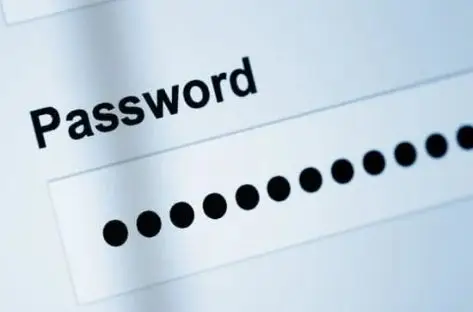These last few weeks, I’ve been discussing the importance of online security more and more, especially the need for a strong password.
Both in our personal lives and in business, it is important that we give the topic of online security and strong passwords the respect it deserves, as not doing so, can have dire consequences.
Yeah, yeah, yeah, I know, you’ve heard it all before, it’ll never happen to you, you’ve been using the same password for years and nothing’s ever happened. All I can say is if you play with fire, you’re going to get burned.
I have been witness to many online scams and cybercrimes over the years. From none malicious hacks to full-on embezzlement of large sums of money and goods.
There is no time to be complacent In today’s digital age, passwords play a crucial role in protecting our personal and business information from unauthorised access. Not taking care of your own digital estate that of your business or those of your wider family, if you are the tech-savvy one, is a reckless game to play.
Cyber threats are constantly evolving and becoming more sophisticated by the hour, so it is now more important than ever to have a strong password.
In this article, I’ll discuss why a strong password is essential and provide you with simple examples and tips on how to create one.
Why are strong passwords important?
A strong password serves as a first line of defence against hackers, identity theft, and unauthorised access to our online accounts.
Without a strong password, our sensitive information, such as financial data, personal details, and private conversations, could be compromised.
Here are a few key reasons why strong passwords are vital:
- Preventing unauthorised access: A strong password reduces the risk of someone gaining unauthorised access to your accounts, protecting your personal information and digital assets.
- Protecting against brute-force attacks: Weak passwords, such as “password123” or “123456,” can be easily guessed by automated software that tries various combinations until it finds the correct one. A strong password makes it significantly harder for these attacks to succeed.
- Securing multiple accounts: Many of us have multiple online accounts, including email, social media, and online banking. Using a strong, unique password for each account ensures that if one account is compromised, the others remain secure.
Examples of weak passwords:
Let’s take a look at a few examples of weak passwords that you should avoid at all costs:
- Sequential or repetitive numbers: Examples include “123456,” “111111,” or “abcdef.”
- Common words or phrases: Avoid using easily guessable passwords like “password,” “qwerty,” or “iloveyou.”
- Personal information: Avoid including personal details like your name, birth date, or address in your passwords. Hackers can easily find this information and use it to crack your password.
Tips for creating a strong password:
Creating a strong password doesn’t have to be complicated. Follow these tips to ensure your password is robust:
- Length matters: Aim for a minimum of 12 characters or more. Longer passwords are generally more secure.
- Mix it up: Include a combination of uppercase and lowercase letters, numbers, and special characters like !, @, or #. This variety makes it harder for hackers to crack your password.
- Avoid common patterns: Don’t use apparent patterns like “123abc” or “qwerty.”
- Unique for each account: Use a unique password for each online account. This prevents a single data breach from affecting multiple accounts.
- Avoid dictionary words: Don’t use common dictionary words, even with substitutions like “p@ssw0rd.” Hackers are familiar with these patterns.
- Consider using passphrases: Instead of a single word, use a passphrase that combines multiple words. For example, “CorrectHorseBatteryStaple” is easier to remember than a random string of characters and provides better security.
In summary:
A strong password is a simple yet powerful way to protect your personal and business information and online accounts. Following these tips and avoiding common pitfalls can significantly enhance your online security.
Remember, combining a strong password with 2FA (Two Factor Authentication) can provide an additional level of security.
Don’t underestimate the importance of robust online security – it could save your digital life.
Stay safe!


